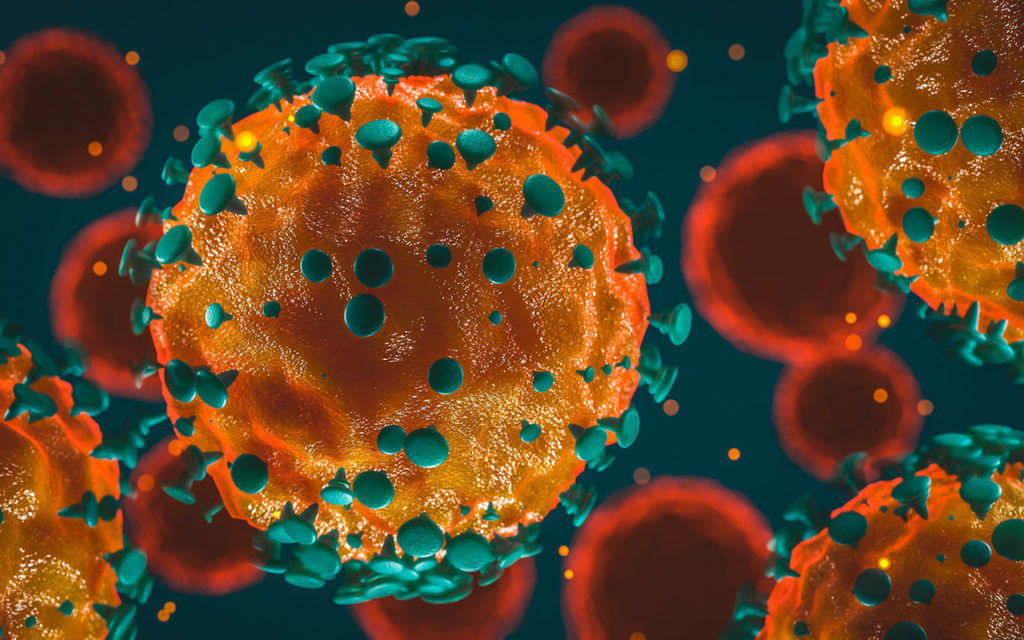RESEARCHERS from South Australia have characterised the COVID-19-related resource burden that might be anticipated as we prepare for living with COVID-19.
Writing in the MJA, the authors examined severe acute respiratory syndrome coronavirus 2 (SARS-CoV-2) testing data for South Australia, as well as the care requirements of patients with confirmed COVID-19, and the disposition of people with potential COVID-19 who presented to the designated COVID-19 hospital, the Royal Adelaide Hospital (RAH), during a period of low COVID-19 prevalence and limited community transmission (30 January – 26 April 2020). They also analysed SA Pathology data on tests for SARS-CoV-2 and other respiratory pathogens, and clinical data from hospital electronic health records.
“Characterising the care requirements of patients with [COVID-19] is essential for resource allocation,” wrote the authors, led by Dr Daniel Haustead, an emergency physician at the RAH and the Queen Elizabeth Hospital.
Haustead and colleagues’ results included:
- Of 52 883 people tested in SA for SARS-CoV-2, 438 had polymerase chain reaction (PCR)-confirmed infections (0.8%).
- Seventeen people with confirmed COVID-19 (3.9%) and 7588 of those without COVID-19 (14%) also tested positive for another respiratory pathogen.
- There were no cases of COVID-19 among people in high care nursing facilities or prisons, nor among homeless people.
- One infection of a health care worker caring for people with COVID-19 was recorded in Adelaide.
- The median time from diagnosis to viral clearance was 15 days; it was lower for people managed in the community (14 days) than for those admitted to hospital (17 days), and there were no sex- or age-related differences.
- A total of 285 people with confirmed COVID-19 (227 aged 18–65 years; 58 over 65 years) were managed entirely in the community; their age and sex distributions were similar to those of all SARS-CoV-2-positive people.
- Of 18 228 patients who presented to the RAH emergency department (ED), 2327 (12.8%) met screening criteria for potential COVID-19, of whom 120 (5.2%) proved to be SARS-CoV-2-positive.
- Most people with confirmed infections were admitted to the inpatient COVID-19 unit at RAH (90 [75%] v 419 with negative results [19%]), while three SARS-CoV-2-positive (2%) and 79 SARS-CoV-2-negative people (4%) were admitted from the ED to the intensive care unit (ICU).
- A total of 536 patients were admitted to the inpatient COVID-19 unit, including 117 who were SARS-CoV-2-positive (22%).
- Seventeen patients hospitalised with COVID-19 (14%) were admitted to the ICU. The median time from hospital to ICU admission was 2.4 days for the eight patients aged over 65 years, and 5.2 days for the nine aged 18–65 years; the median ICU stay was 17.3 days for those over 65 years, and 2.2 days for those aged 18–65 years.
- Four patients died (24%), the only COVID-19-related deaths in South Australia.
“More modest, but persistent, prevalence of COVID-19 is expected to follow the major pandemic wave of 2020,” Haustead and colleagues noted.
“Our data, gathered in an environment of low community transmission and a health care system with considerably greater capacity than demand, reflects the COVID-19-related resource burden that might be anticipated as we prepare for living with COVID-19.”
Also online first at the MJA
Ethics and law: Transparent triage policies during the COVID‐19 pandemic: a critical part of medico‐legal risk management for clinicians
Close et al; doi: 10.5694/mja2.51079 … FREE ACCESS permanently.
Podcast: Dr Eliana Close is a Postdoctoral Research Fellow at the Australian Centre for Health Law Research at Queensland University of Technology. She talks about transparent triage policies … FREE ACCESS permanently.
Research: The Queensland Inpatient Diabetes Survey (QuIDS) 2019: the bedside audit of practice
Donovan et al; doi: 10.5694/mja2.51048 … FREE ACCESS permanently.

 more_vert
more_vert